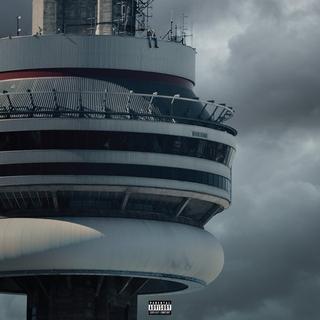The beginning of Drake’s reign at the cultural top of the rap game happened in one singular moment.
Four minutes and 14 seconds into “She Will,” the fourth single released off Tha Carter IV, Lil Wayne passes up a third verse and announces with pride dripping from his voice: “Ladies and gentlemen, Drizzy.” Drake graciously accepts the offer and answers with his own take on the song’s hook.
In this historic moment, Lil Wayne passed the torch and reign at the top to his protégé — and the rest was history.
Drake has now ended his own reign with the release of Views, a slow, a nearly hour-and-a-half-long drive through Toronto into the sunset of Drake’s career.
Over the course of this journey into this career afterlife, Drake has done something incredible. He has captured not only the bliss of returning home, but also the crushing realization that there’s more to the world than home.
The bar, “There’s more to life than sleeping in and getting high with you, I had to let go of us to show myself what I could do” epitomizes this. Of course Drake is addressing an ex-flame, but there’s more to it: he’s addressing his hometown. Eventually we all have to grow up, stop getting high with friends in our parents’ homes and become productive members of society.
As he always does, Drake taps into one of the devastating truths of life. As much as home offers a comfortable, familiar setting, it entraps you in stasis. For somebody to reach their full potential, it often takes leaving home to see what else the world has to offer. But Drake reminds his audience that your hometown never loses a place in your heart: “I might take a breather but I won’t ever leave you.”
Album reviews insist that Views fails to fulfill Drake’s promise of an examination of Toronto, and instead narcissistically focuses solely on himself. This critique misses the point. Views isn’t a Toronto album by Drake. It’s Drake’s Toronto album. When somebody reflects on home, they don’t think about the complex nuances woven into their city. They think about their life within it.
So when Drake reflects on old friends, ex-girlfriends and himself, he examines the impact the city of Toronto had on him personally. Despite Drake’s affinity for bragging about all he has done for Toronto, Views isn’t an album about what Drake has done for Toronto. Views is an album about what Toronto has done for Drake.
Of course, Drake could have improved the artistic quality of Views by chopping 20 minutes off, but he pleads, “Please give me time, cause I’m searching for these words to say to you right now.”
At a certain point, every musician becomes less interested in making songs other people want to hear and instead just wants to make the music he or she wants to make. Drake takes this leap on Views and by doing so enters into the next phase of his career.
This next phase will be less about selling as many albums as possible, and will instead be about Drake creating music that reflects how Drake feels in that moment. As a fan, I can only hope that Drake’s post-peak resembles Prince’s, with Drake releasing a deluge of music moving forward. The extended length of Views gives me hope that that will indeed be the case.
People can bemoan the length of Views and claim the length weakens the album, but that misses the point. This album doesn’t exist for you to sit down and listen to it during pregames and parties. Views exists for the nights you spend driving through the streets of your childhood, lost in thoughts of simpler times, until the gas light blinks.


